The engineering industry is moving fast, and to stay ahead, engineers need to be more than skilled in their specific areas of expertise.
One important skill engineers can learn is programming, because knowing how to code is a basic literacy in today’s digital age. If you thought the ability to write computer programs was just for computer science students or software engineers, then you’d be mistaken. In fact, without this knowledge, it might hold back your career or make you miss an opportunity one day in the future.
Yet, as an engineer, you might not know which programming language to learn. So we have listed our recommendations below. We also outline the best languages by some of the key disciplines of engineering. Want to know about programming languages for mechanical engineers? Then you’ll find examples of how engineers can use these languages today.
Before we get to that, we will also break down what programming is, why programming is so important and so suited to the engineering mindset. See the table of content below to jump to the different sections in this article if you wish to skip to certain information.
Table of Contents
1. What is a programming language?
1.1. What is the difference between programming and scripting?
2. Programming for Engineers
3. Why do engineers make great computer programmers?
4. Where can you start learning how to program?
4.1. Tips on Learning How to Program
5. Best Programming Languages for Engineers
6. Programming Recommendations For Your Engineering Discipline
6.1 Best Programming Languages for Mechanical Engineers
6.2 Best Programming Languages for Electrical/Electronics Engineers
6.3 Best Programming Languages for Civil Engineers
6.4 Best Programming Languages for Chemical Engineers
6.5 Best Programming Languages for Data Engineers
7. Summary
What is a programming language?
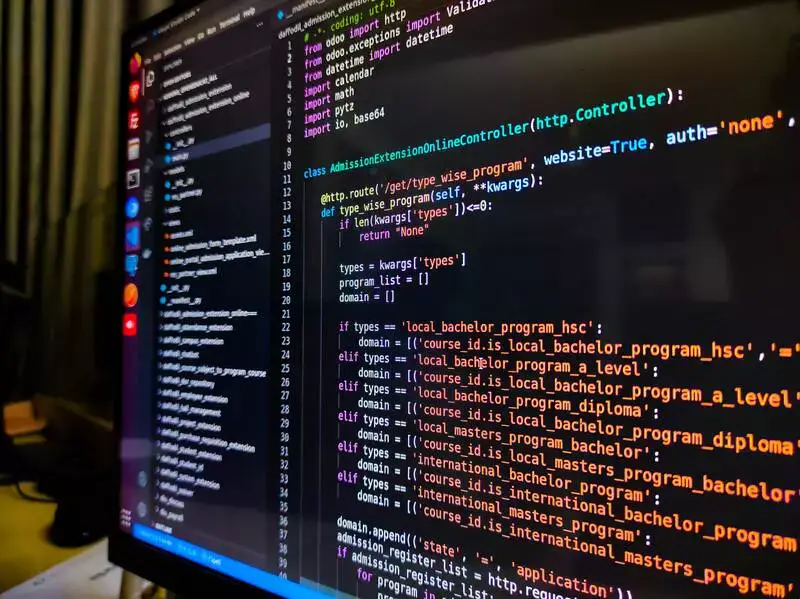
A programming language provides us with a way to communicate with machines. It tells a computer what to do by using algorithms and instructions to perform specific tasks. Or to put it in simple words, a programming language is a set of rules that allow us to tell a machine what tasks need to be done.
Each computer programming language (and there are a ton of them listed on Wikipedia) has its own set of instructions and requirements. The instructions of the language can be as simple as a one-line command or as complex as several lines that guide the program on what to do and when.
Programming languages are not only used to program computers. They are also used to program all sorts of digital machines. Every digital device employs some code to function.
What is the difference between programming and scripting?
Scripting languages are a subset of programming languages and are used to automate system tasks. For example, using scripting you might automate the process of formatting and attaching a file to an email.
One major difference between programming and scripting is that programming languages are compiled whereas scripting languages are interpreted.
This article covers both coding with a programming language or scripting language.
Programming for Engineers
Programming skills allow engineers to save time on what would otherwise be spent on doing tedious and repetitive tasks. Engineers program to automate tasks, simplify workflows, or make tools to help people get things done faster.
Programming abilities help engineers tackle difficult computational and analytical challenges. This is becoming even more sought after in the engineering industry due to the rapid developments in artificial intelligence (AI), robotics, and automation.
The modern workforce demands individuals who have a strong understanding of technical skills and problem-solving abilities. And learning a programming language can open many doors for you as an engineer or even just as a student majoring in STEM fields.
These skills can make your abilities future-proof and you can even use them in many different sectors, like finance, consulting, and software development.
Read our in-depth article about: Why Learning to Code is Important for Future Engineers where we discuss more details about the benefits of programming to your future career.
Why do engineers make great computer programmers?

Engineers are often described as natural computer programmers because they have skills like curiosity, strong logical and analytical skills, creativity when solving problems, and attention to detail.
In the same way, being a great programmer also requires skills like logic building, analytical thinking, and having attention to detail. In fact, engineering is all about problem-solving and so is programming! Thus, as an engineer, you too can be great at programming as you already have the mindset and skills to become a great programmer.
Where can you start learning how to program?
Most schools or colleges provide access to programming courses. If yours doesn’t, then you can learn to code in many ways.
You could take a coding bootcamp, join a coding club, watch YouTube video tutorials, or sign up for free MOOCs (massive open online courses) or paid online courses.
Many beginners start with an introductory course in a programming language like Python, which is not only simple and powerful but has a lot of real-world applications ( we will also discuss more about Python later in the ‘best languages’ section.).
As an engineering student, I used to take free programming courses on edX, FreeCodeCamp, W3Schools, and Khan Academy. All of these platforms offer free programming courses starting from the introductory level to intermediate and advanced.
I personally liked FreeCodeCamp also because of the engaging lessons, and the free completion certificate!
Tips on Learning How to Program
An important thing to remember while taking courses is to practice and do coding projects. You can’t realize the power of programming without actually getting into it or practicing it to help shorten your learning curve.
Additionally, to help you stay motivated and focused, you could join a programming learning challenge like #100DaysOfCode [1] on social platforms like Twitter. These types of challenges help you stick with it because you’re committed to this challenge publicly with other users on Twitter.
Best Programming Languages for Engineers
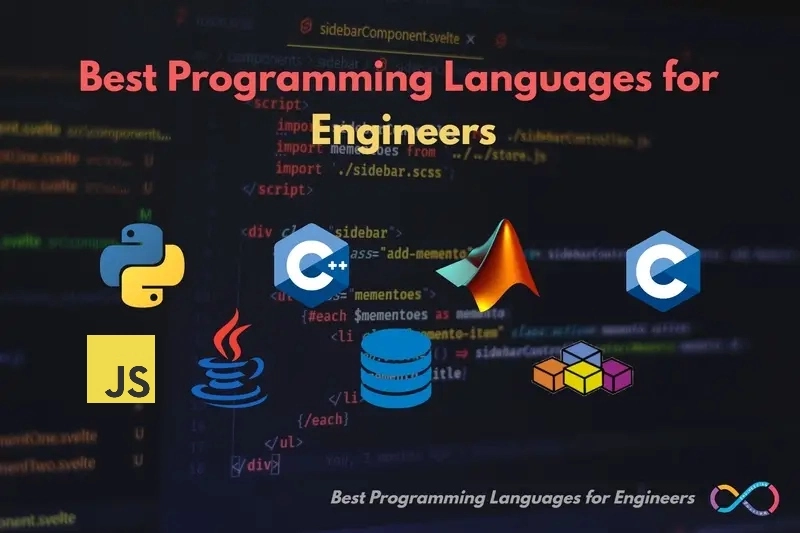
There are hundreds of programming languages to choose from. But not all of them are suited for engineers. So rather than do the hard work to figure this out yourself….
Let’s now check out the list of “Best Programming Languages for Engineers” we’ve researched and selected based on today’s industry needs!
Note: The languages listed here are arranged in no particular order.
#1 Python: Easy, Fun, Widely Used with a Great Community.
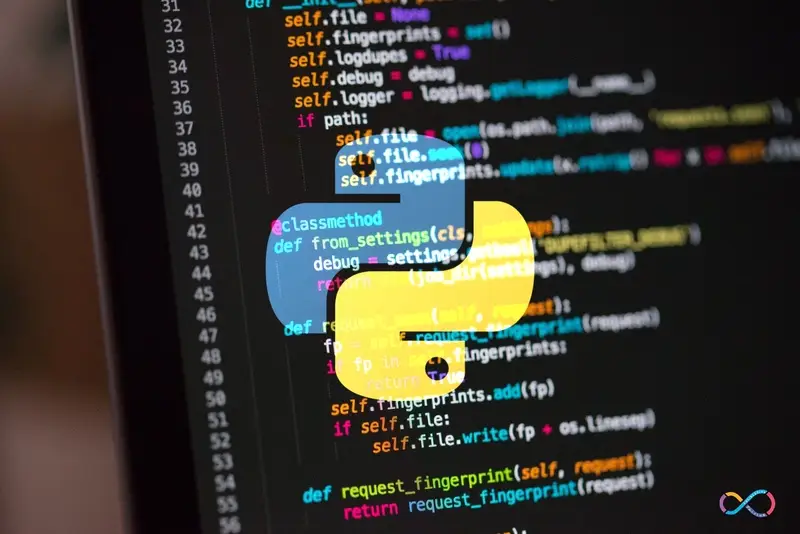
The Dutch developer Guido Van Rossum created Python in the late 1980s. Python was released by the Python Software Foundation company in December 1989. It has evolved much since then as new features are added each year.
Python is considered one of the best programming languages due to its simplicity, flexibility, and incredible ability to handle complex projects. Everything you can do with other languages like C++ or Java, you can also do in Python.
Python is a high-level language.
Programming in this language is fun as it’s one of the easiest programming languages for anyone to learn. Python has simple syntax (code less, get more done) which is closer to human language (than machine language) which makes it easier to read and less effort to write compared to other programming languages.
Python also has lots of libraries that can help beginners. Libraries are a set of useful functions that can be imported into a program, therefore, eliminating the need to write code from scratch.
However, one drawback associated with python is its speed. It’s slower to execute code than some other programming languages such as C++, PHP, or Java when you have hundreds and hundreds of lines of code. That said, some of the very largest companies use Python even though this limitation exists, and many experienced developers do not find this to be a problem for most applications.
Python is widely used by computer scientists, data scientists, data engineers as well as artificial intelligence (AI) & machine learning (ML) experts.
#2 C Language: Powerful, Flexible, and Extremely Fast.
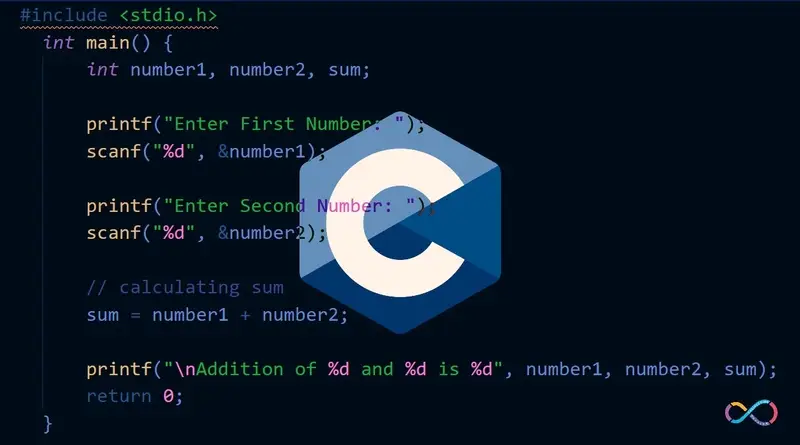
C programming language is one of the oldest languages developed by Denis Ritchie in the 1970s. Despite being an old language, it’s extremely powerful and robust. It has been used to create significant portions of modern operating systems, video games, and software.
Initially, an operating system was developed in this language. Now, it is widely used and is a general-purpose programming language.
C language offers various features that make it one of the most in-demand languages in the market. One of its major advantages is that C coding made in one environment can be used in any environment without any variations. It is because the C language is independent of any machine.
We also can break down C coding into various functions and they will all run individually without any problem. The best thing about the C programming language is that it can create a bridge between high-level programming languages like Python etc., and low-level machine code (binary) typically runs on microprocessors or microcontrollers.
More miscellaneous features include clean style, relatively fast speed, extensive libraries, and easy management of memory.
#3 C++ (C Plus Plus): All Benefits of C but Easier to Work With.
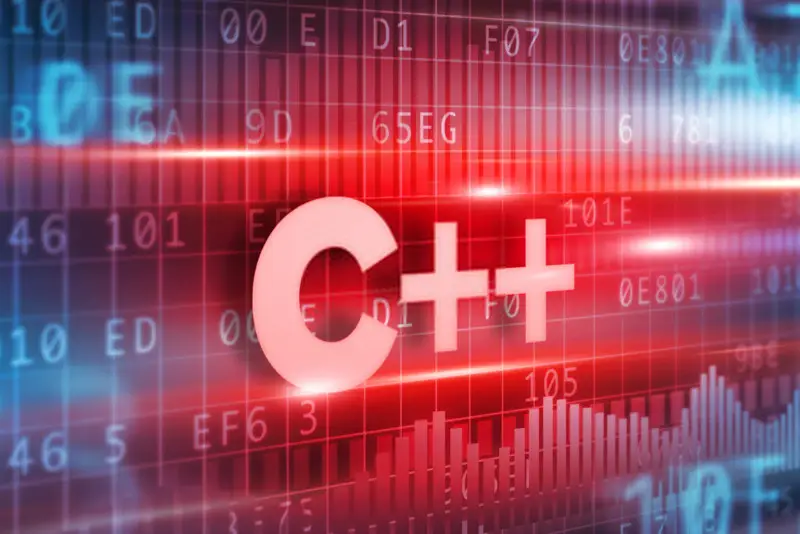
C++ language is considered the superset of C language, it was developed by Bjarne Stroustrup as an extension of the C programming language. It’s also called C with Classes.
C++ is also one of the object-oriented (OO) programming languages with various features. With the release of C++ in 1979, it eliminated the drawbacks of C language including namespace feature and reference variables support.
Programming in C++ can be a bit tedious as compared to other programming languages, but it ensures better performance and efficiency. The main advantage of C++ over C lies in the fact that C++ supports both object-oriented and procedural programming while C only supports procedural programming.
C++ is used by countless software developers due to its quality and fast results. This programming language is also the preferred choice of IT companies when it comes to developing embedded systems, video games, and desktop applications.
#4 Java: Open Source, Easy to Work With, and Super Flexible.
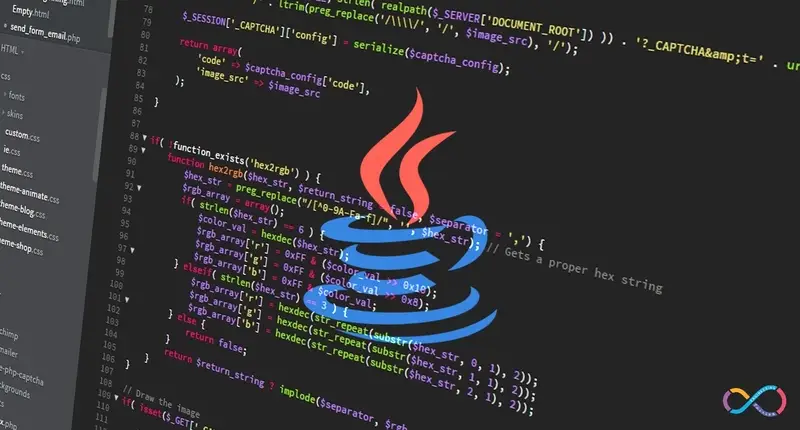
Java is a general-purpose and concurrent programming language that was designed and created by James Gosling at Sun Microsystems in 1995. It’s one of the robust, efficient, and highly secure programming languages.
It’s one of the most demanded programming languages because of its popularity and flexibility. It’s more popular among software developers. Java has also been used as an effective tool for teaching Object Oriented Programming (OOP) concepts.
Java is open-source and a platform-independent language, which means it supports all the operating systems. Although some features found in C and C++ like pointers, and multiple inheritances are not found in Java but features like availability of open source libraries, true object-oriented, dynamic capability, and multi-threading make Java superior to other languages.
As a Java developer, you can create high-end desktop and web applications. Most of the gadgets, IoT devices, and machines use Java language for their software. Also, most of the mobile apps (Android) and games are developed using Java.
#5 JavaScript (JS): The Essential Language for Web Applications.
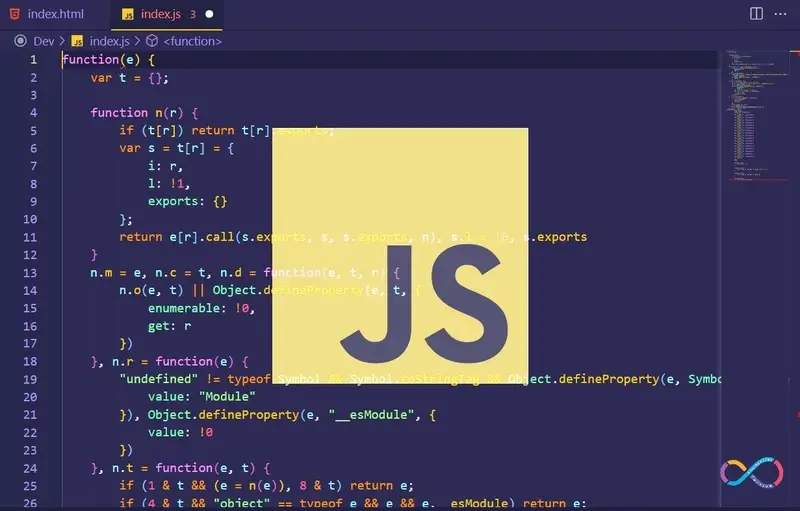
JavaScript, as the name implies, is a scripting language, which was developed by Netscape. It was developed to make web pages more interactive and dynamic. JavaScript is a different programming language from Java, despite the similar name
It’s now the most popular (programming, scripting, or markup) language according to StackOverFlow [2] because of its extensive use in front-end application development and also as a preferred programming language for browsers.
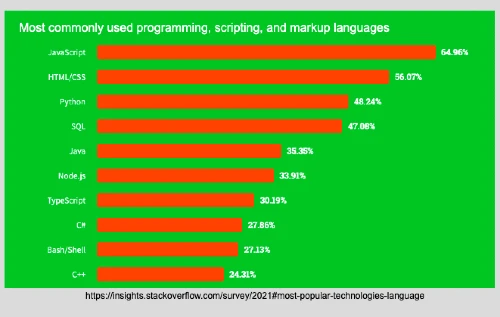
The main advantage of JavaScript is that it supports all types of browsers without any variations. Programming in JS is not difficult as many people believe; you can master it with practice.
Another major benefit of using JavaScript language is that it’s an object-oriented programming language that can be used for both frontend and backend web development.
JavaScript, HTML, and CSS are the foundations of a visually appealing website, so these languages are commonly studied together by web developers and designers.
#6 MATLAB: Designed Specifically for Engineers and Scientists
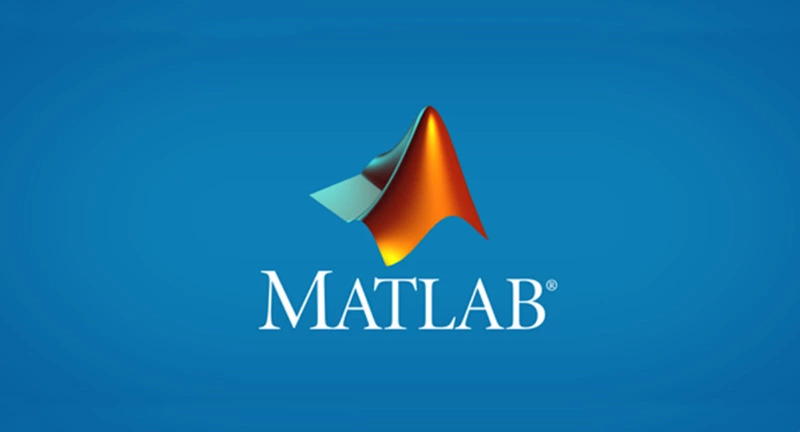
MATLAB (an abbreviation of “MATrix LABoratory”), a high-level technical computing language, is developed and owned by MathWorks. It is a multi-paradigm language and an interactive environment mainly used for numerical computations which support data structures and allow matrix manipulations.
It provides support for algorithms development including linear algebra operations etc. at the core of MATLAB programming language. MATLAB is both considered a scripting language and computing environment.
It’s very useful for engineers who want to do numerical analysis and data visualizations. Additional packages, Simulink and Simscape, provide graphical multi-domain simulation and model-based design for dynamic and embedded systems.
It’s versatile, simple, and easy to learn as compared to other programming languages. However, this language is mainly used for engineering calculations and simulation purposes as it is more focused on mathematical procedures and models.
MATLAB provides an enormous library of mathematical functions for linear algebra, statistics, Fourier analysis, filtering, optimization, numerical integration, and solving ordinary differential equations. It also offers built-in graphics for visualizing data and tools for creating custom plots.
MATLAB is a proprietary language and is not available for free.
#7 Structured Query Language (SQL): Essential for Communicating with Databases.
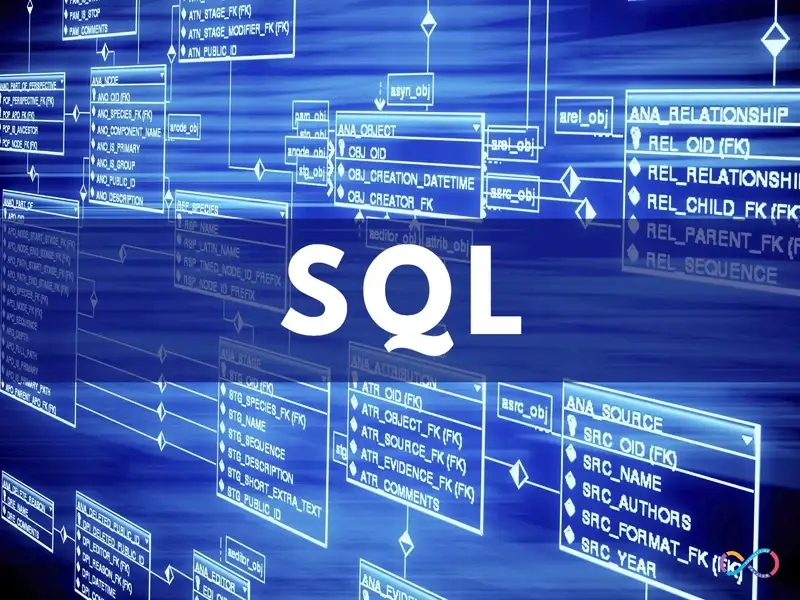
SQL programming language is more than a simple query language as the name suggests. It’s a special-purpose programming language designed for managing data held in a relational database management system (RDBMS), or for stream processing in a relational data stream management system (RDSMS).
SQL has become an essential requirement for business applications. It’s mostly used by engineers, analysts, and data scientists to build enterprise-scale applications that can process huge chunks of data.
SQL is not used to create software and web applications. Instead, it is used to make databases that store information for them and to communicate with databases.
The most appealing aspect of SQL is how simple it is to learn and comprehend since its queries are linguistically similar to normal English. SQL is also considered one of the most popular programming languages.
SQL supports most relational databases such as MySQL, Oracle Database, MS SQL Server, etc., which means a developer can apply it on almost every platform depending on your requirements.
#8 Visual Basic for Applications (VBA): Streamline and save time doing repetitive tasks.
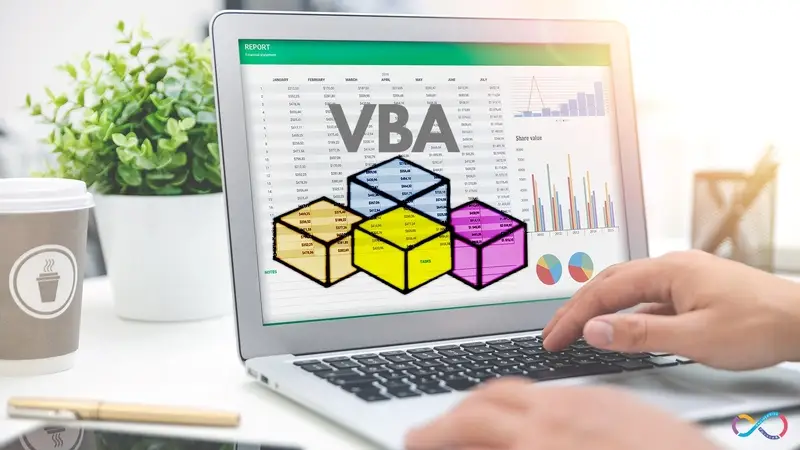
Visual Basic for Applications (VBA) is an event-driven programming language that is included in Microsoft Office Suite. It is a third-generation programming language that has the features of Visual Programming Languages.
VBA language allows users to create their own applications by using pre-existing objects, properties, and methods found in Microsoft’s popular application programs like Excel, Word, Outlook, etc. which are already installed on your computer system.
VBA was implemented to provide an easy way to create small scripts that can be used with Microsoft Office programs like MS Excel to extend its functionalities.
More specifically, it provides the ability to easily automate the same task over and over again without having much experience in coding or programming.
Programming Recommendations For Your Engineering Discipline
While there are numerous programming languages, some are more important than others depending on the engineering discipline. As programming languages have their own strong and weak points, we have grouped our recommended programming languages according to the work profile and use cases by engineering discipline in the sections below.
Best Programming Languages for Mechanical Engineers
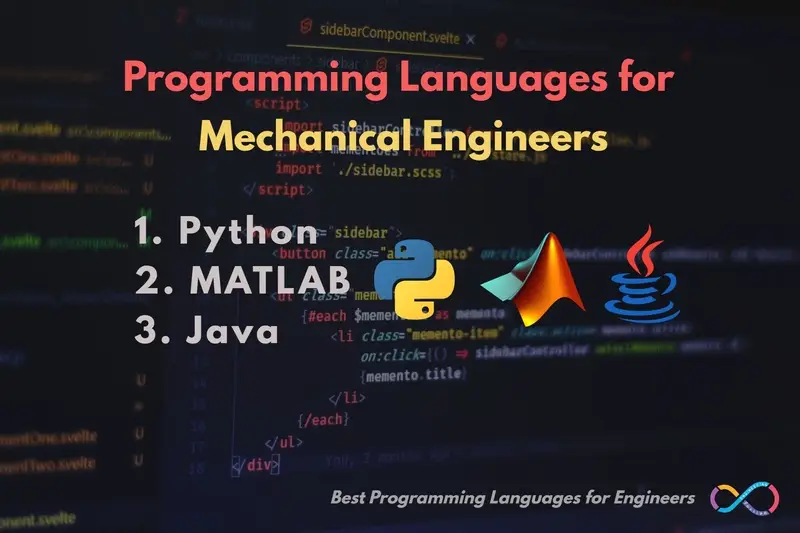
Our recommendations for the best programming languages for mechanical engineers are Python, MATLAB, and Java.
-
Python for Mechanical Engineers
It is a great language for mechanical engineers because Python makes numerical analysis easier. For example, if you’re looking for a pressure difference across a duct while a liquid is flowing through it. Not only will the issue take a lot of time to solve, but obtaining precise answers or charting the disparities would be challenging at best. You can swiftly solve such issues in Python, which gives you graphical simulations instantly.
Python offers a range of libraries like SciPy, Numpy, and Matplotlib for mechanical engineers that can help them solve numerical analysis problems easily.
-
MATLAB for Mechanical Engineers
Most mechanical engineering undergraduates are required to have a knowledge of MATLAB language in their sophomore year. Because MATLAB has built-in support for 2D and 3D visualization. It is a very fast prototyping platform for models, simulating dynamics of mechanical objects, and performing control system analysis.
Let’s assume you’re in the field of computational fluid dynamics of objects, MATLAB provides tools for CFD mechanical engineers to do CFD analysis easily and more quickly. A separate CFD Toolbox for MATLAB, called QuickerSim CFD Toolbox, allows you to create standard flow simulations and heat transfer in fluids and solids.
-
Java for Mechanical Engineers
Java is the perfect language for mechanical engineers because Java is one of the most used programming languages. You can build cross-platform applications with Java. For example, if you have Java skills you can develop mobile applications that can solve ODE/PDE equations or create a web application that calculates basic HVAC system calculations.
Best Programming Languages for Electrical/Electronics Engineers

Our recommendations for the best programming languages for electrical/electronics engineers are MATLAB, C++, and Python.
-
MATLAB for Electrical/Electronics Engineers
MATLAB helps electrical/electronics engineers solve technical computing challenges faster than ever before by taking messy details away from them so they can focus on their specific problem without any distractions. It provides you with all essential functionalities including plotting, data analysis, etc., which makes it an excellent choice for fast prototyping & designing.
For example, at the concept stage of a new product, electrical/electronics engineering managers may use MATLAB to show their teams a proof of concept because prototyping with MATLAB reduces the time it takes to bring a product to market.
Electrical/electronics engineers can also use MATLAB for system-level computing tasks, such as linear algebra and matrix computations.
- C++ for Electrical/Electronics Engineers
C++ is a recommended language for electrical/electronics engineers because it offers good library support and high performance. The C++ programming language is one of the most preferred languages for developing embedded software. For example, if you’re developing an IoT project you will need to program microcontroller boards or IoT development boards using C++ language.
Electrical/electronics engineering students have a lot of C++ work to do since it’s used to program microprocessors and integrated circuits (ICs), conduct signal processing, and even simulate some electrical engineering processes and faults.
-
Python for Electrical/Electronics Engineers
Python is also an excellent programming language for electrical/electronics engineers because Python offers a lot of modules that can help EEs. As an electrical/electronics engineer you can use Python to create schematics entirely in text using the SKiDL module, simulate electrical circuits quickly using the PySpice module and do math problems and visualize results with NumPy and Matplotlib modules.
Moreover, electrical/electronics can use Python to control and automate test equipment like digital storage oscilloscopes and do more complex things like signal processing.
Best Programming Languages for Civil Engineers
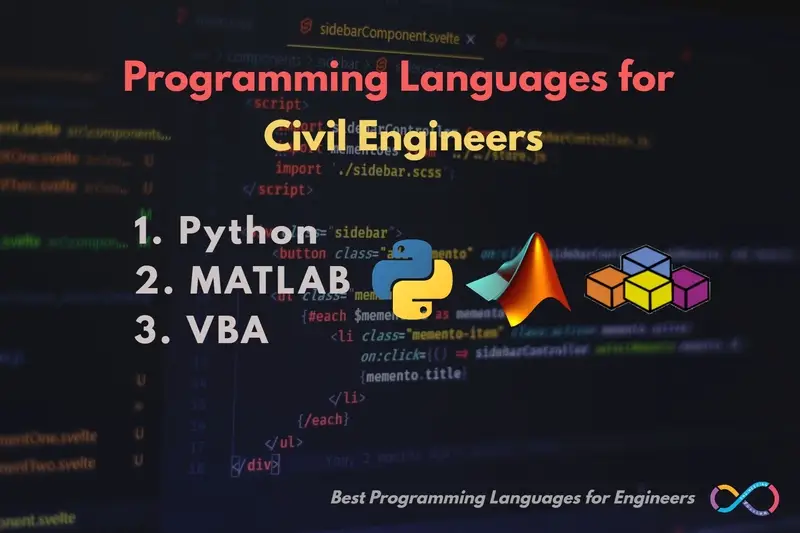
Python, MATLAB, and VBA are the most popular choices among civil engineers when it comes to the best programming languages.
-
Python for Civil Engineers
Python is a very useful programming language for civil engineers. Civil engineers can use Python to develop various design calculation apps for combined footing, doubly reinforced beams, finding quantities of materials for concrete, and so on.
Let’s assume you’re employed in the field of road construction, and you have to calculate the curvature layout or cut and fill volumes of the soils. You can use Python to automate all of these computations, making them easier to calculate.
-
MATLAB for Civil Engineers
MATLAB offers essential features needed by many engineers, especially in the civil engineering industry. MATLAB stands out due to its structure and simplicity which makes it easy for civil engineers to solve engineering problems more efficiently.
Civil engineers with a good understanding of MATLAB may use it to make efficient, compact simulations to solve a variety of engineering issues at various levels of complexity. For example, as a civil engineer, you can use MATLAB in surveying and, more particularly, in leveling and calculating the bearing.
-
VBA for Civil Engineers
As a civil engineer, you’ll be using MS Excel frequently. VBA will assist you in automating spreadsheet activities and extending MS Excel capabilities. For example, with VBA you can write a macro and assign it to a button that can save your excel file in a specific format in a directory of your choice with a single click.
Moreover, you can use VBA to interface between simple spreadsheet inputs and software packages that work on the command line, like AutoCAD or GTSTRUDL. Possibilities are limitless with VBA, it can save you a lot of effort and time.
Best Programming Languages for Chemical Engineers
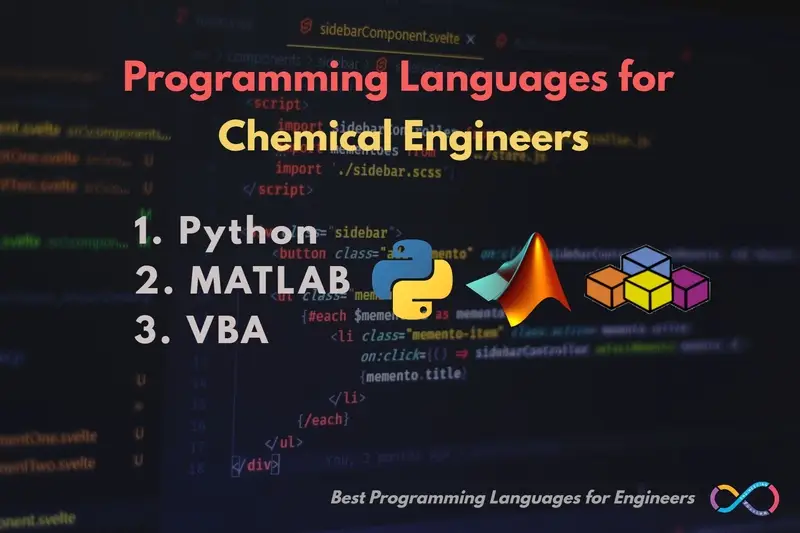
Chemical engineers will find Python, MATLAB, and VBA to be the best programming languages.
-
Python for Chemical Engineers
Python Programming language is used by many companies in the chemical engineering field. You can use Python to develop your own programs or use existing modules. For example, Caleb Bell a chemical engineer has developed 3 different modules for chemical engineers and technicians using Python language. The Python modules developed by Caleb Bell can be used to perform fluid dynamics, thermodynamics, and heat transfer calculations.
Moreover, Python makes interaction easy between teams and facilitates collaboration on complex projects. You will find many other fellow engineers from other disciplines like electrical engineering that also use Python language.
-
MATLAB for Chemical Engineers
MATLAB is now widely used in chemical engineering, from numerical approaches to flow issues to reaction engineering and even control engineering. For example, you can use MATLAB to simulate the process of designing a chemical reactor to the modeling of a process for reaching its desired output and thus finding the appropriate operating condition.
Moreover, as a chemical engineer you can use MATLAB to solve and plot rigorous equations in chemical engineering, for example, the axial dispersion model equation.
-
VBA for Chemical Engineers
As a chemical engineer, you will be using MS Excel a lot. VBA will help you automate your spreadsheet tasks and extend the existing functionalities of MS Excel. It’s very beneficial when you’re dealing with issues that need numerical rather than analytical solutions since it allows for iterative and function-based calculations.
For example, if you’re working in AutoCAD you can use VBA to pull information from AutoCad to Excel for manipulation and push it back to AutoCAD. Another use-case of VBA would be creating a button that runs a macro to perform a series of chemical equations and provide you with output. These are just some examples, you can create macros for almost anything Excel saving you a lot of time.
Best Programming Languages for Data Engineers
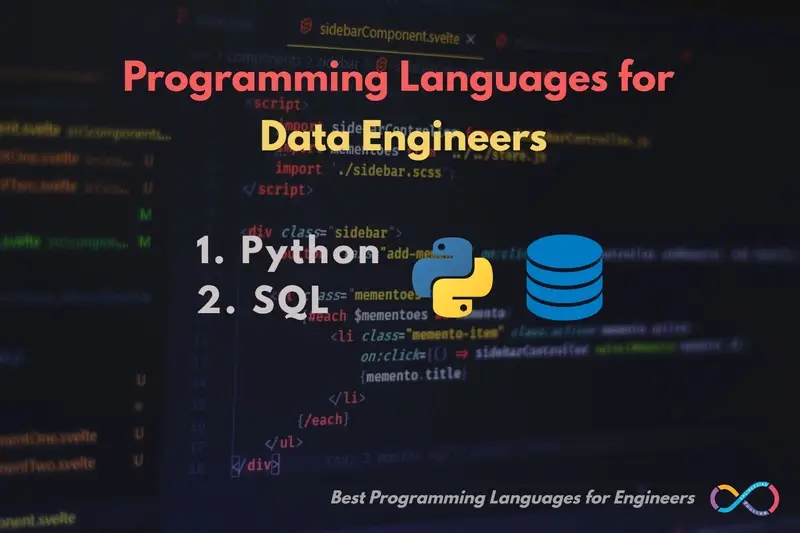
Python and SQL programming languages are the most popular among data engineers.
-
Python for Data Engineers
Python is one of the most popular programming languages for data engineers because you can easily access different types of data like structured and unstructured efficiently. Python is most often used for data analysis and pipelines in data science.
Data Engineers use Python language for data munging, such as reshaping, aggregating, linking different sources, and so on. It’s also used for ETL (Extract, Transfer, Load) processes in data engineering.
Python is used in data engineering for machine learning activities, web scraping, or pre-processing massive data with Spark, and it’s also the default coding language of Apache Airflow. [3]
It also allows easy integration with databases to perform further analysis through visualization tools. Moreover, the Python programming language is widely used in big data projects due to its simplicity and ease of use by beginners.
-
SQL for Data Engineers
As a data engineer, you must have a thorough understanding of databases. Data engineers have no way around it! Because SQL is used to represent business logic, extract critical performance indicators, and create reusable data structures, it is a wonderful tool for data engineers.
In addition, SQL may be utilized to access, read, modify, and analyze database data and generate helpful insights to help an informed decision-making process. SQL is the language of databases and thus you should be familiar with it as a data engineer.
Summary
Programming languages are powerful tools that allow you to improve your productivity and the accuracy of results. As an engineer, you should have a good understanding of the programming languages required for your profession. Engineers should know programming languages to succeed in getting a good job and in the course of their career as it will help you future-proof your skills and create more job opportunities.
So there is our list! There are many other resources on the internet that recommend languages such as C#, which is developed by Microsoft and is similar to Java. Other popular languages for engineers include R, Scala, and PHP.
If you want to know more about these programming languages from an engineering point of view, or if you think we left a language off the list, please let us know in the comments and we will consider adding it.
References:
[1] 100DaysOfCode official website
[2] StackOverFlow programming languages survey




![Types of Engineers and What they Do [Explained]](https://www.engineeringpassion.com/wp-content/uploads/2022/04/types-of-engineers-and-what-they-do-280x210.jpg)





I am glad to discover this page. I have to thank you for the time i spent on this especially great reading !! i really liked each part and also bookmarked you for new information on your site.
Hi Brij! Glad to know that you’ve found Engineering Passion useful ????